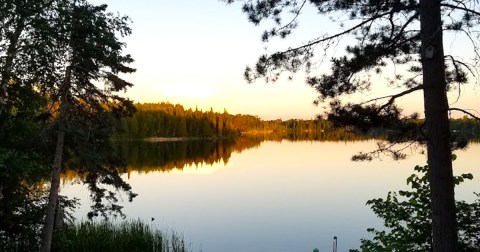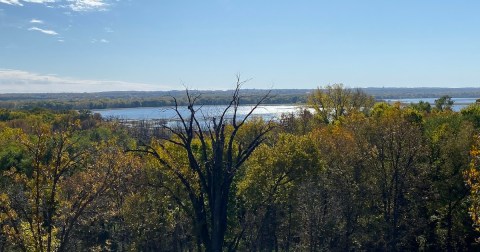12 Icons Of Minnesota's North Shore That Everyone Must Visit
Highway 61, Minnesota’s most storied and classic byways, spans the length of the state from north to south along the eastern border. And the northern leg of the thoroughfare, a 150-mile stretch from Duluth up to Grand Portage, follows the rocky, rugged cliffs that hug Lake Superior. There is a lot of history and beauty along this jaunt, and here are 12 of the most iconic sites present today.
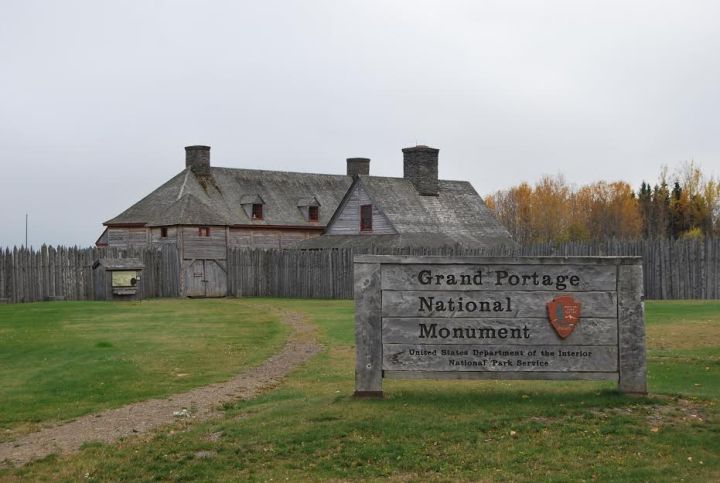
Photo courtesy of Seth Hardmeyer
One of only two National Monuments in the state, Grand Portage National Monument is a place rich with history of where the area’s first explorers once congregated. Pictured above, the Great Hall, is the reconstruction of a trading post where Voyageurs and Indians did business as far back as the 1700′s. Grand Portage National Monument falls entirely in the confines of the Grand Portage Indian Reservation, and the site was designated a National Monument in 1958. It sits just a few miles shy of the end of the road, where Minnesota borders Ontario, and is the end (or beginning) of the magnificent Highway 61.
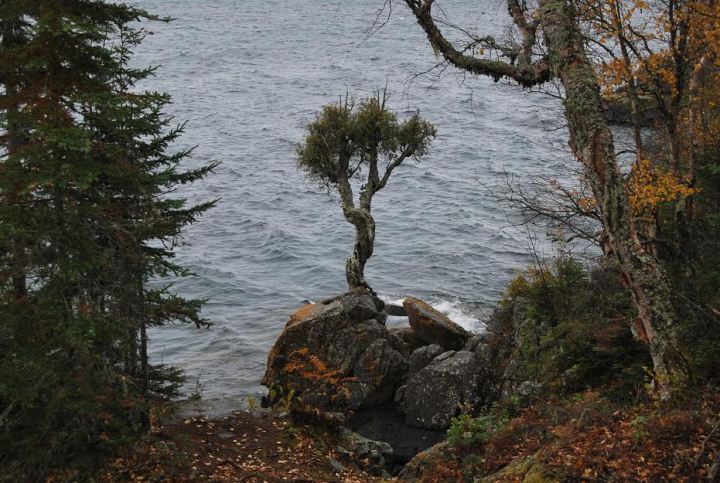
Photo courtesy of Seth Hardmeyer
Known by the local Ojibwe as "Little Spirit Cedar Tree," this evergreen conifer on the rocky shoreline outside of Grand Portage is a very curious site. Its earliest recorded existence dates back to the 1700’s, when a French explorer commented on its maturity, but no one really knows for sure how long it predates that. The Ojibwe who control the land on which it sits consider it sacred and often leave offerings for safe travel. The tree is technically off limits to visitors unless accompanied by a guide.
Advertisement
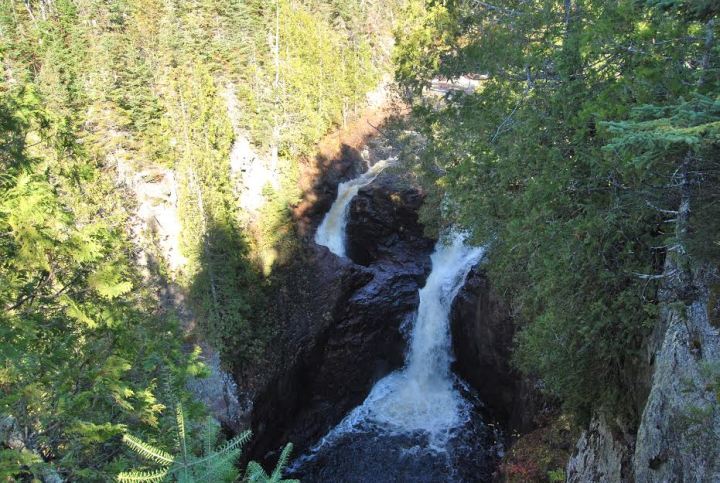
Photo courtesy of Seth Hardmeyer
The Devil’s Kettle in Judge C.R. Magney State Park is a real geological anomoly. The Brule river splits here into two falls – the waterfall on the right drops fifty feet into a pool and makes its way out to Superior. The falls on the left drop into a sinkhole and disappears, according to legend, forever. Apparently geologists have dropped brightly colored dyes and other objects into it and have no idea where they end up.
Advertisement
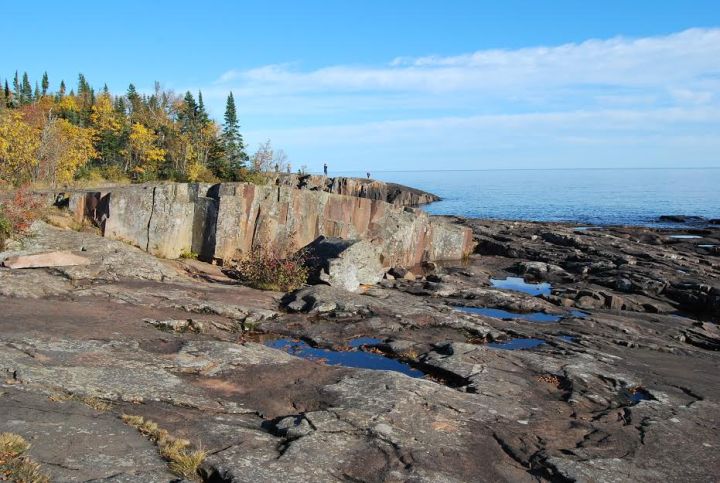
Photo courtesy of Seth Hardmeyer
A peninsula of rock and trees in Grand Marais, called Artist’s Point, is a picturesque location to observe the surrounding beauty and hike out along the shore. Named so due to the endless possibilities to photograph, paint, create, daydream, relax, or find inspiration, this peaceful and scenic area is perfect after exploring the touristy town of Grand Marais. Bonus points for finding the names carved into the rocks which date back over a hundred years.
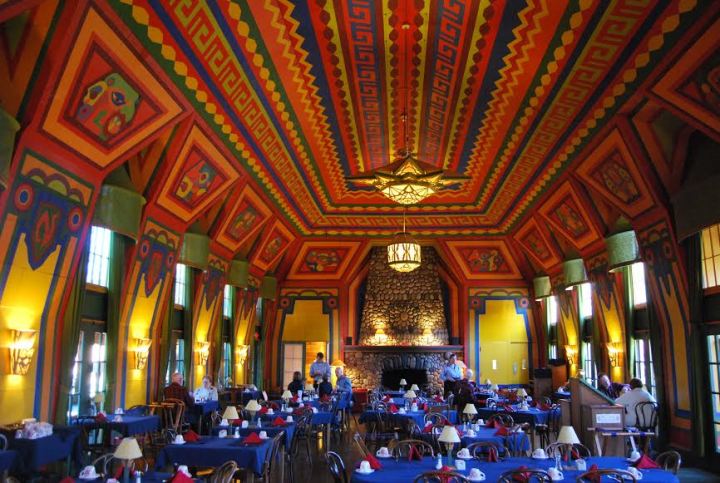
Photo courtesy of Seth Hardmeyer
One of the most historic and overlooked locations on the North Shore is the Naniboujou Lodge. Named after Nanabozho, an Ojibwe Indian legend, the lodge’s dining room décor features an intricate design of Native American and Art Deco influences. Its roots go back to the 1920’s, where it was opened as an exclusive club type of setup, with members included celebrities Babe Ruth and Jack Dempsey. The Great Depression hit it hard, stalling many of the original plans. It changed hands several times but continues to operate as a resort to this day and is still as incredible as it was then.
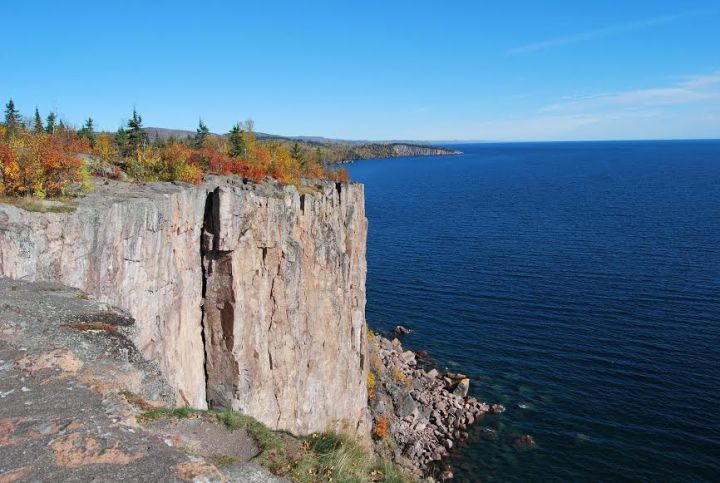
Photo courtesy of Seth Hardmeyer
A large rock formation jutting several hundred feet above Lake Superior, Palisade Head is often missed while passing though the area. Technically part of Tettegouche State Park, it’s actually located a few miles outside of the park boundaries, found off a small access road with a parking area on the top, just off Highway 61. It’s arguably the best overlooks on the North Shore, with views of Silver Bay’s mining docks to the south, the Sawtooth Mountains to the northeast, and the crystal clear waters of Lake Superior everywhere else.
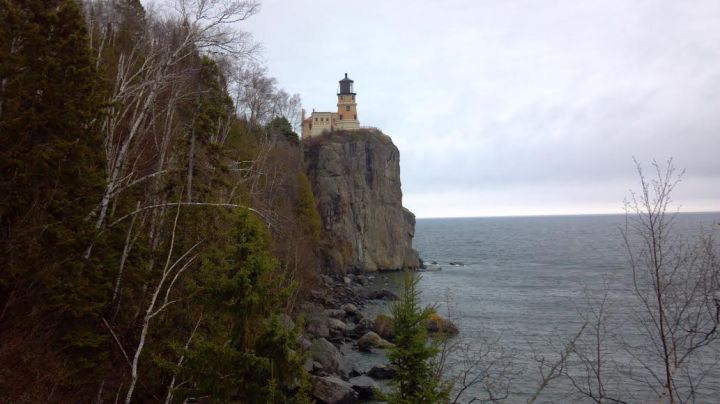
Photo courtesy of Seth Hardmeyer
Emblematic of the coastal-like beauty of the rugged shores of Lake Superior, the Split Rock Lighthouse is a postcard-worthy Minnesota attraction. It has stood since 1910 and was decommissioned in 1961. The lighthouse and other outbuildings are available for tours through the Minnesota Historical Society and the DNR at Split Rock Lighthouse State Park.
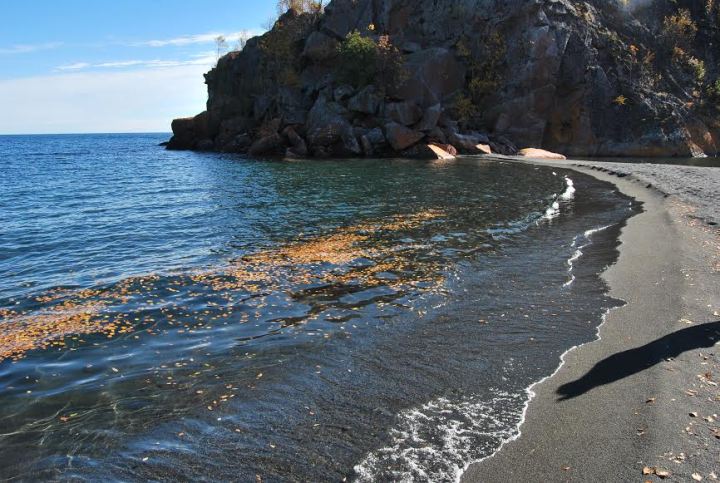
Photo courtesy of Seth Hardmeyer
The fascinating Black Beach, found in a secluded, non-marked area by Silver Bay is the only one of its kind, an otherworldly beach of fine black sand and rock. The black color here is due to the taconite mining present here, dating back to a time when for 25 years, unusable taconite waste was dumped into the lake. After local fishermen complained about the water quality, the local mining companies stopped, and the result was this gorgeous, black-sand beach.
Advertisement
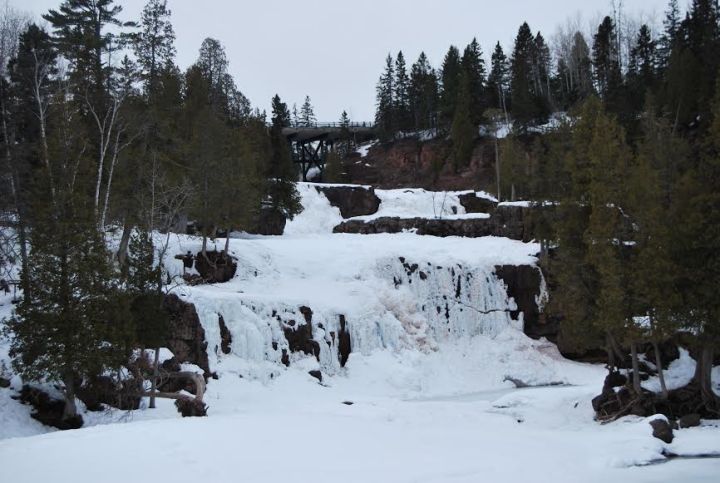
Photo courtesy of Seth Hardmeyer
The crown jewel of the North Shore, Gooseberry Falls, is the most visited Minnesota State Park with over half a million annual visitors each year. A multiple-level falls formation thunders through a beautiful river gorge and flows out to Lake Superior in a truly amazing setting. It’s impossible to go to the North Shore and not stop and take in this site. And it’s especially beautiful in winter (above).

Photo courtesy of Seth Hardmeyer
The 1,344-foot tunnel through Silver Creek Cliff was completed as recently as 1994. The tunnel allows vehicles on Highway 61 to pass through the mountain as opposed to formerly following a narrow, treacherous 2-lane road around the edge, which was the primary route since the 1920’s. Prior to that, the road detoured several miles inland. Construction took three years of dynamite blasting to remove 500,000 cubic yards of rock.
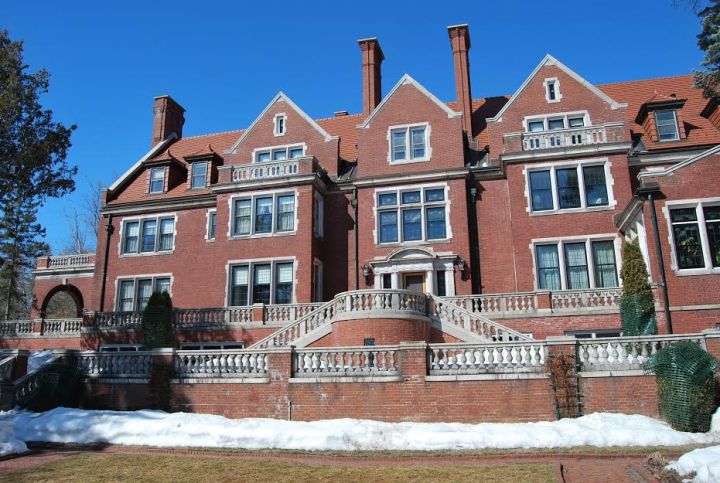
Photo courtesy of Seth Hardmeyer
It’s by far the most opulent, historic, and incomparable mansion in Minnesota, and within the walls is a real-life murder mystery tale. Set on the shores of Lake Superior in Duluth, the Glensheen Mansion’s has five levels, 39 rooms, and almost everything inside is preserved as it was in the early 1900’s. The mansion is currently owned and operated for tours and events by the University of Minnesota-Duluth.
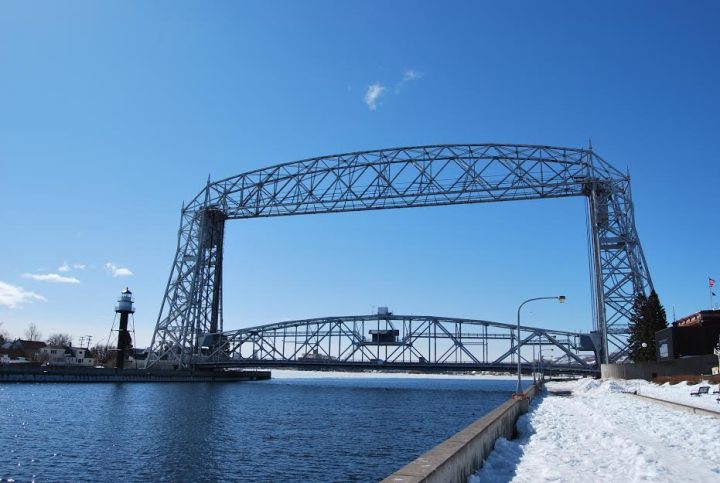
Photo courtesy of Seth Hardmeyer
Duluth’s most notable landmark, the Aerial Lift Bridge has stood in the harbor since 1905, spanning the Duluth Ship Canal. The steel bridge raises up and down in warmer months to let tall ships, freighters, ferries, and other large vessels through. Originally designed as a transporter bridge with a gondola, the bridge was remodeled in 1929 to a lifting structure.
Did we miss any? What icons would you include on a trip up the North Shore?
OnlyInYourState may earn compensation through affiliate links in this article. As an Amazon Associate, we earn from qualifying purchases.


